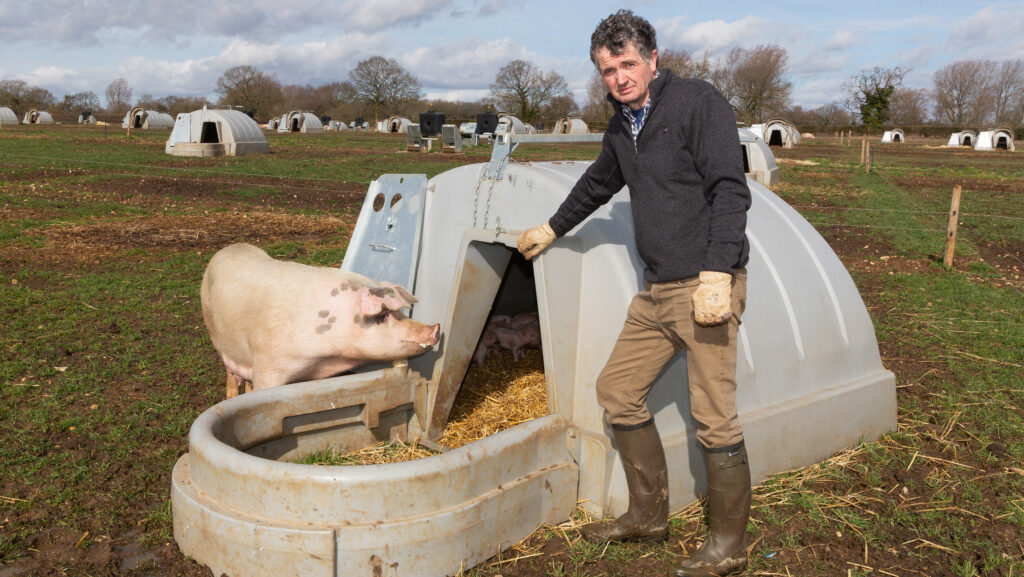Farmer Focus: Shade project and apprentices made summer fly
 © Tim Scrivener
© Tim Scrivener Summer seems to have gone in a flash. This could be down to the season starting slowly in May, or that I took my annual two-week holiday mid-summer instead of at the very end (as I have been doing of late).
However, the true reason for this summer blur is probably down to a range of projects and commitments on the farm.
Last year’s sow shade experiment is developing. BQP has funded a range of experimental approaches across a number of farms.
I don’t think the shades I got were the bottom of the budget, but they did show clearly that if you want to reuse the same shades in successive seasons (as we wish to) and avoid fuelling a throwaway culture, then you need good-quality materials.
See also: On test: 3 types of shade for outdoor pigs
Better built shades also require less labour to maintain them.
A second BQP trial we are involved with has just started. For quite a while, water treatment has been taking place on growing farms, but very little has been done on breeding units.
Many farms, including ours, now use water tanks with nipples as an alternative to open troughs.
A study of water system hygiene has shown that, while in most instances tanks contain much lower levels of bacteria, a case can be made that both tank and trough hygiene could be improved.
We are one of several farms now dosing our pipelines with a hydrogen peroxide disinfectant.
Water samples will continue to be taken, and it will be interesting to see what effects are reported, especially in the areas like lairages, where we know water hygiene is an issue.
My other big commitment this summer has been giving three young students, all 16-year-old post-GCSE school leavers, a taste of working on a farm.
They all have plans for careers in agriculture and two have now headed off to different agricultural colleges, while the third is starting A-levels.
It’s been great having them about, and encouraging that there are now young people looking at our industry for careers.
It also made me realise how complex farming has become. They couldn’t do several tasks because they were either too young or the work carried too much responsibility.

